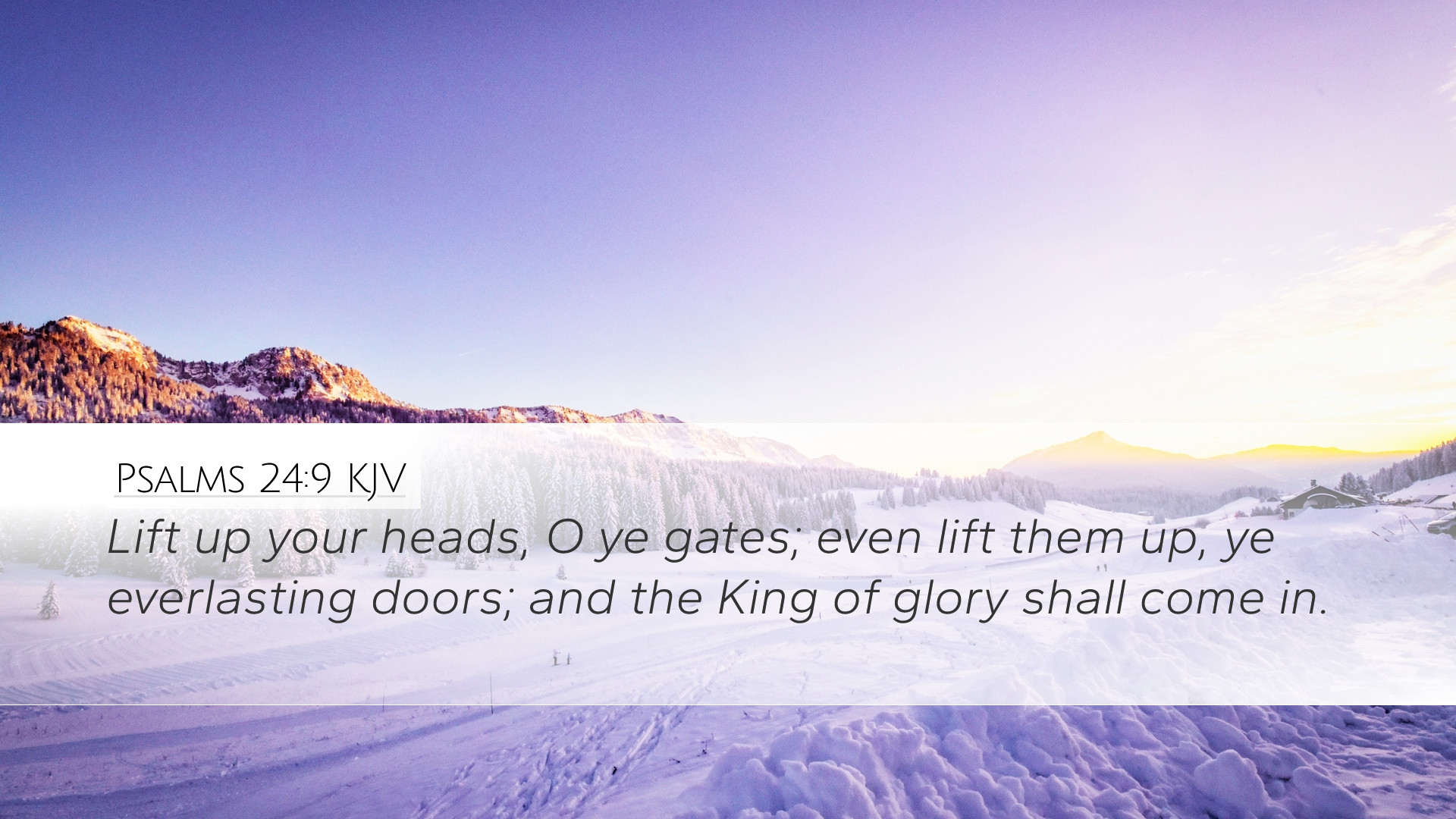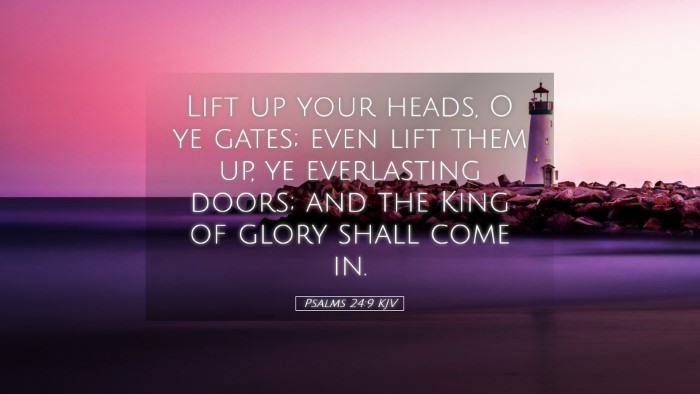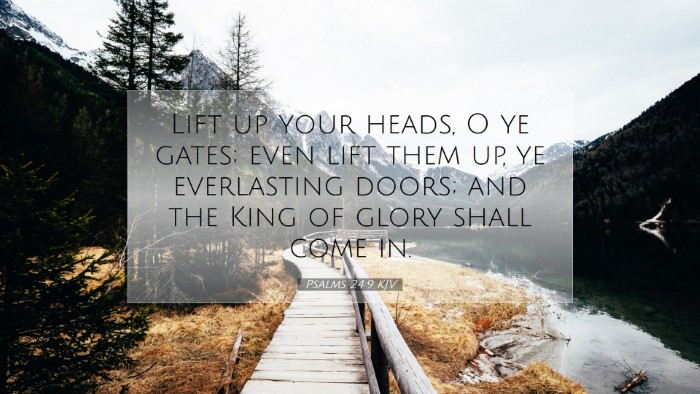Commentary on Psalms 24:9
Psalms 24:9 states: “Lift up your heads, O ye gates; even lift them up, ye everlasting doors; and the King of glory shall come in.” This verse serves as a call to the gates, both metaphorical and literal, to welcome the presence of the Lord, the King of glory. Below is an analysis synthesized from the insights of renowned public domain commentators.
Introduction to the Psalm
The 24th Psalm is a majestic declaration of the sovereignty of God. Here, David appears to invite the gates of Zion to prepare for the entrance of the Lord. This Psalm emphasizes the glory of God and the importance of holiness in approaching Him. According to Matthew Henry, this Psalm serves as both a declaration of God’s glory and a proclamation of the requirements for entering into His presence.
Analysis of Key Phrases
-
“Lift up your heads”: This phrase signifies an invitation to the gates and the people to rise in anticipation of the divine entrance. Albert Barnes interprets this as a metaphor for expectancy and readiness.
-
“O ye gates”: The gates symbolize both the literal entrances to Jerusalem and the spiritual entrance to God’s presence. Adam Clarke points out that gates often imply a threshold to God's kingdom, representing access to the eternal.
-
“Even lift them up, ye everlasting doors”: The mention of "everlasting doors" indicates the eternal nature of God's kingdom. Matthew Henry emphasizes that these doors stand forever open for the King of glory, transcending earthly limitations.
-
“And the King of glory shall come in”: This highlights the imminent arrival of God in His glory. Albert Barnes suggests that the declaration that the "King of glory" is coming underscores His power, majesty, and dominion over all creation.
Theological Implications
This verse serves as a reminder for believers about the importance of holiness and purity when entering into God's presence. The notion of welcoming the ‘King of glory’ underscores the vital understanding of who God is. Adam Clarke notes that the idea of glory relates not just to God’s visible attributes but also to His moral majesty.
Moreover, the gates inviting the King signify the participation of the faithful community in worship and recognition of God’s greatness. Matthew Henry reflects on how this invites the believers themselves to prepare their hearts and lives for His entry.
Historical Context
Understanding the historical setting of Psalms 24 enriches its message. This Psalm is often associated with King David bringing the Ark of the Covenant into Jerusalem. As Albert Barnes discusses, this represents not merely a physical act of moving the Ark but a spiritual proclamation of God’s reign over Israel. This act was laden with significance, reflecting Israel’s identity and their covenant relationship with God.
Call to Action
For pastors and theologians, Psalms 24:9 serves as a profound exhortation not just to recognize God’s glory but to enact the welcome through lives of holiness. Matthew Henry encourages the faithful to open their hearts as these gates may be seen in a New Testament light, inviting the presence of Christ in their lives.
This lifting of heads and preparing of gates can serve as an encouragement for congregations to engage with the divine presence actively. Adam Clarke concludes that as we embrace God’s glory, we must also be willing to embody that glory in our communities.
Conclusion
Psalms 24:9 is a powerful declaration, inviting us to lift our heads and prepare our lives for the coming of the King of glory. This text not only speaks to the heart of worship but also poses a challenge to believers to maintain a posture of readiness and reverence before God. The reflections from noted commentators provide a rich theological framework for understanding and living out this invitation in our own lives.


